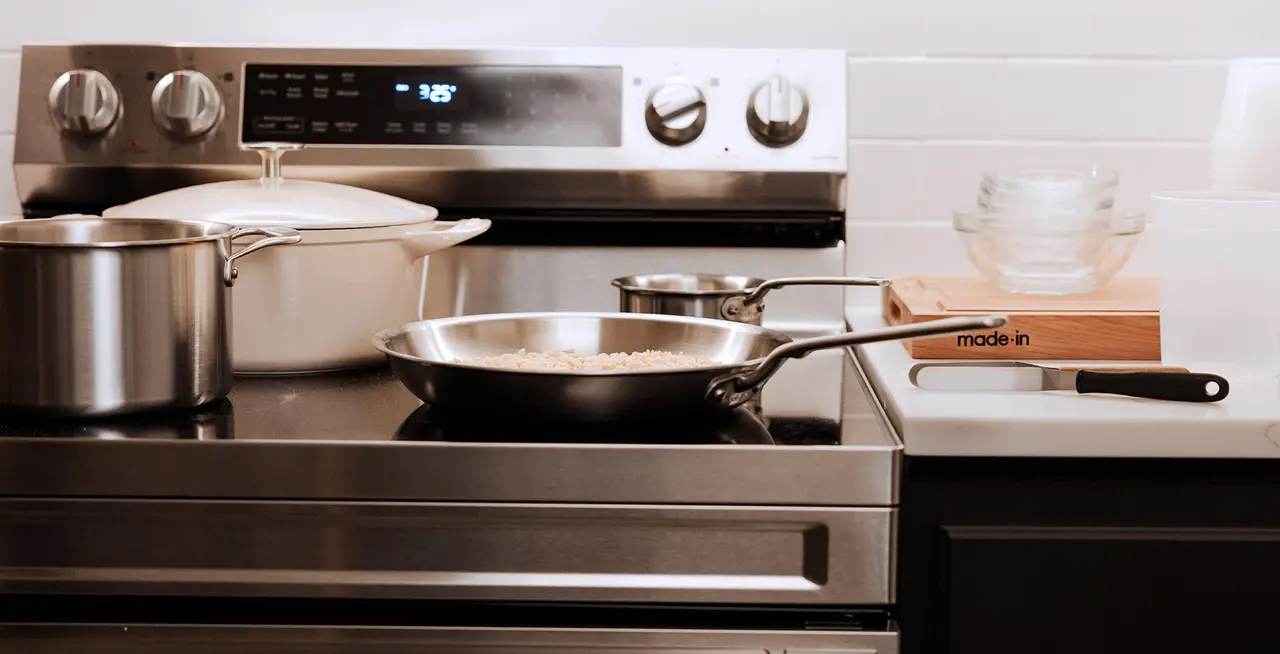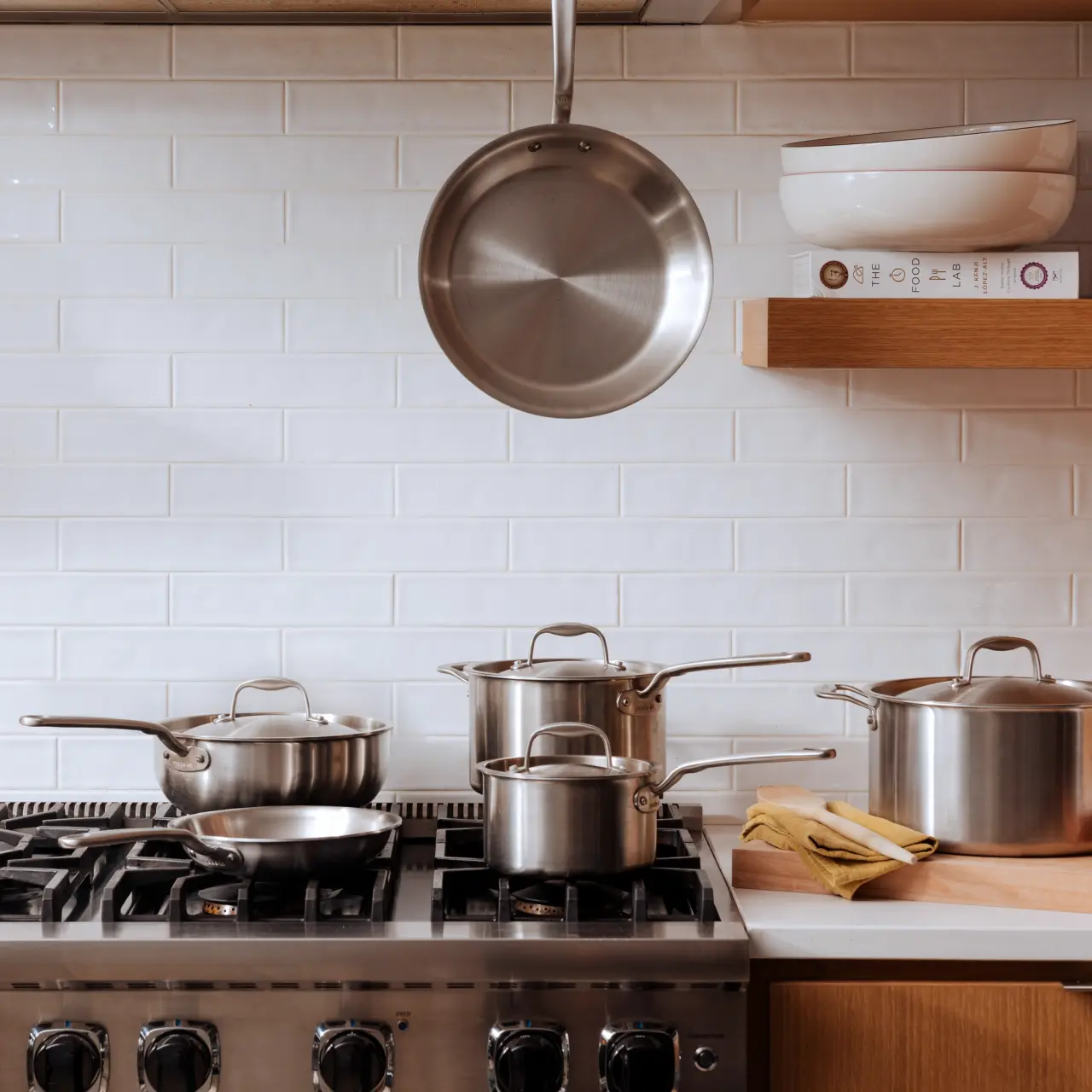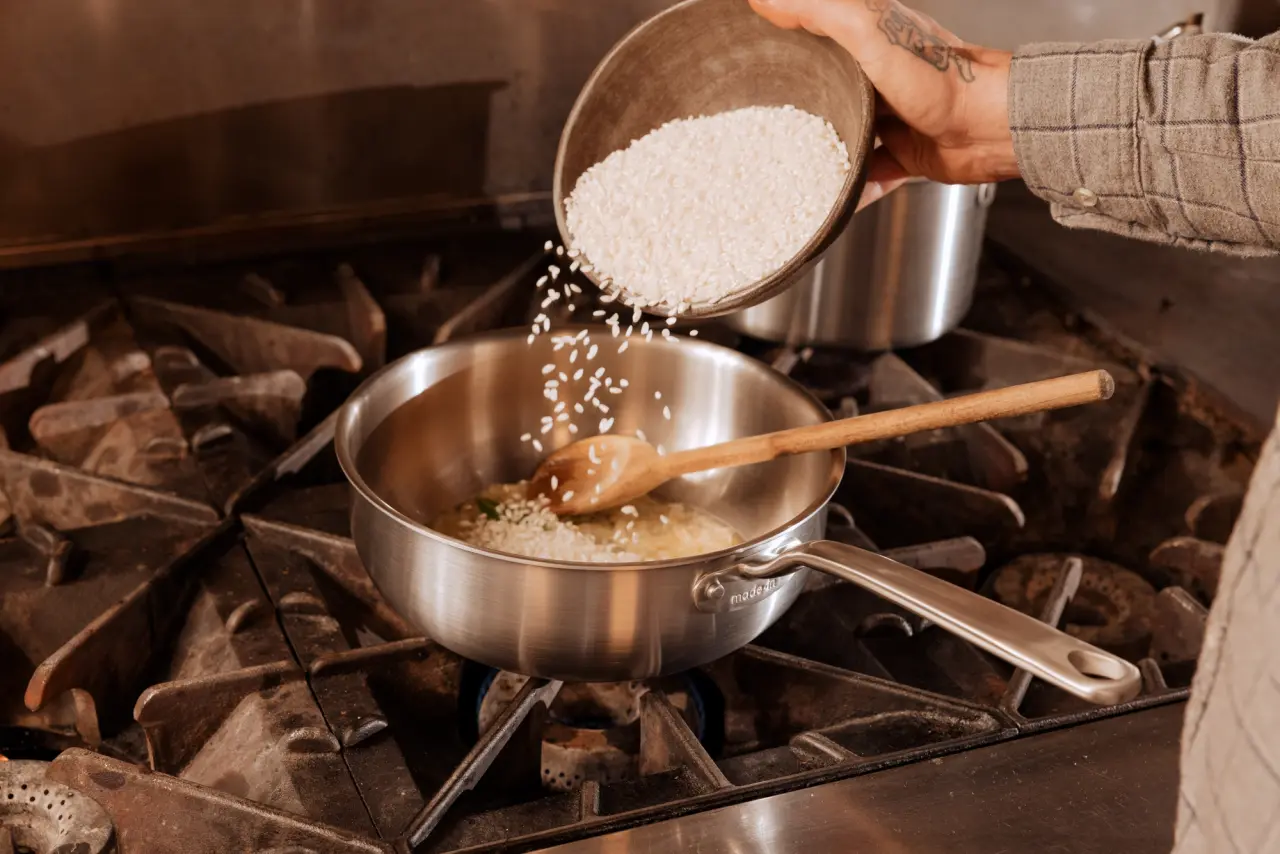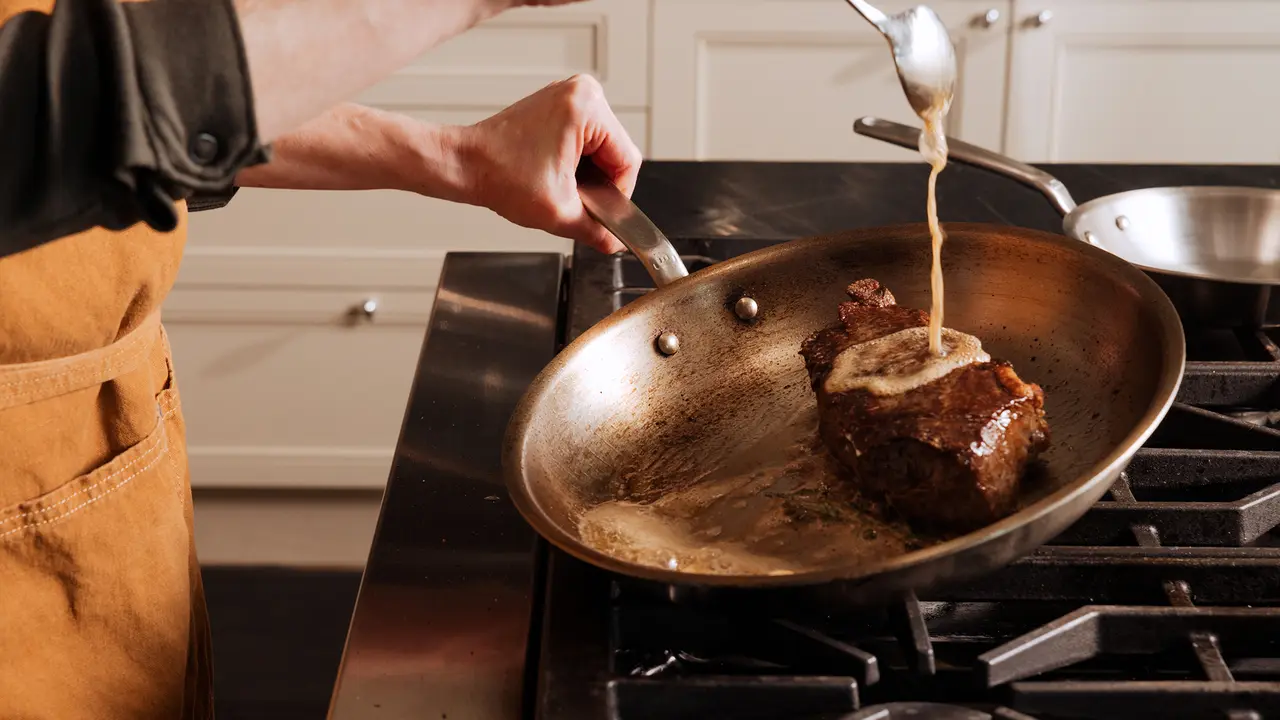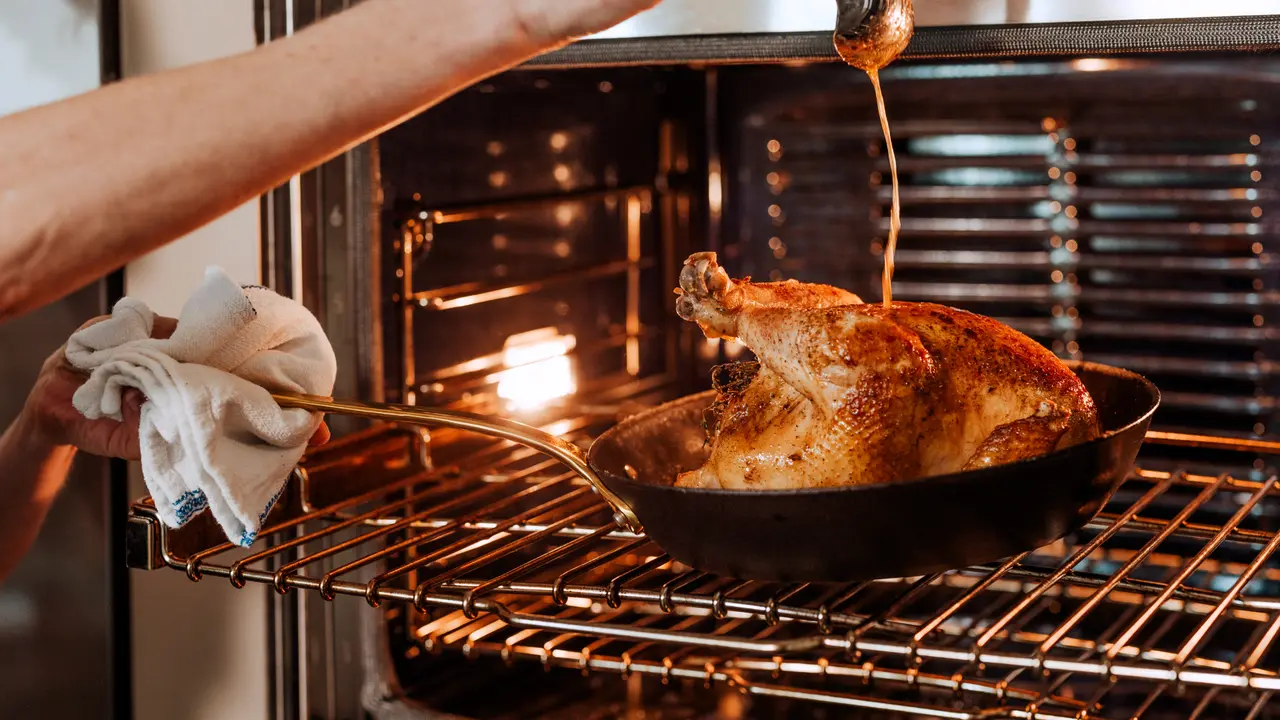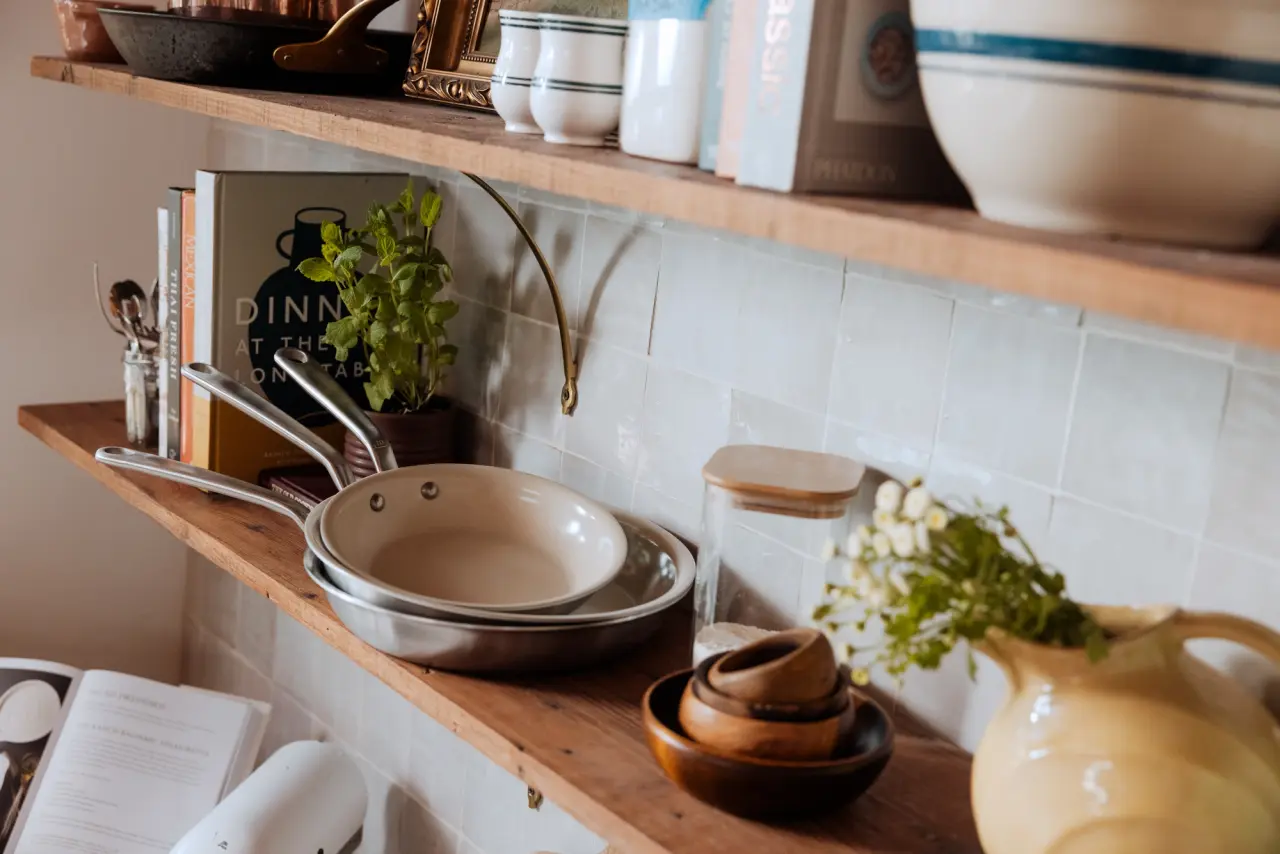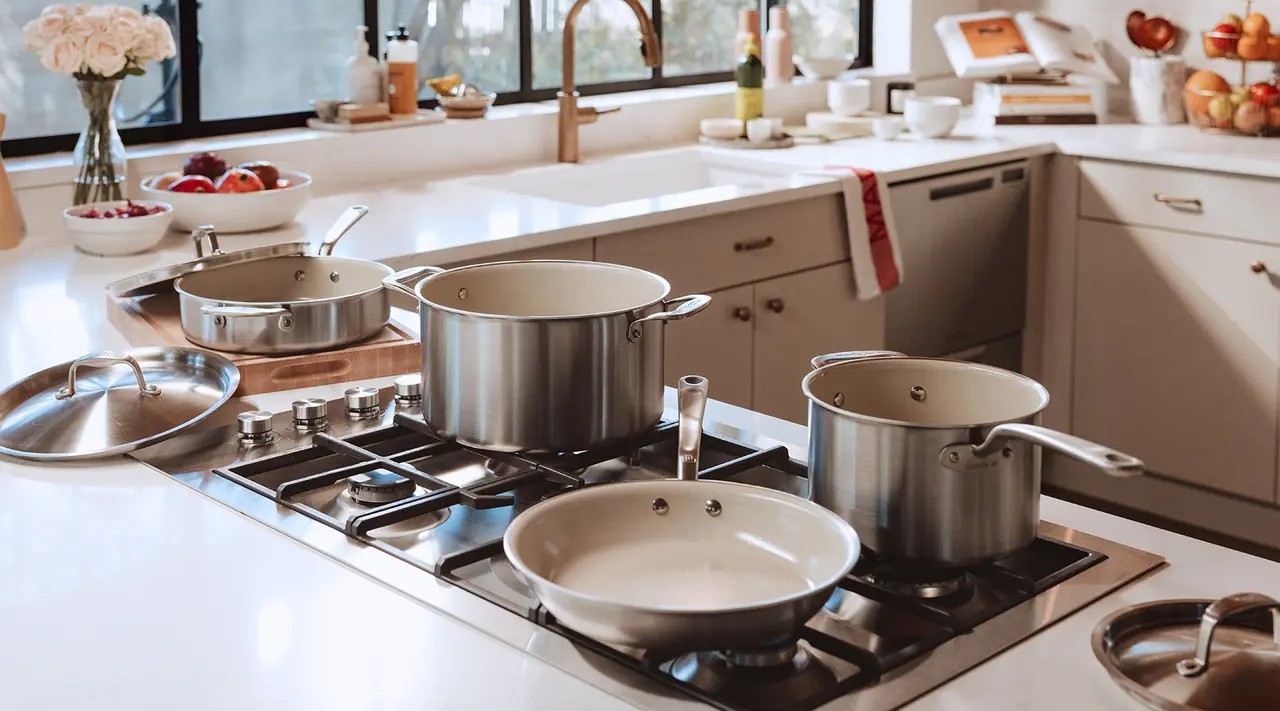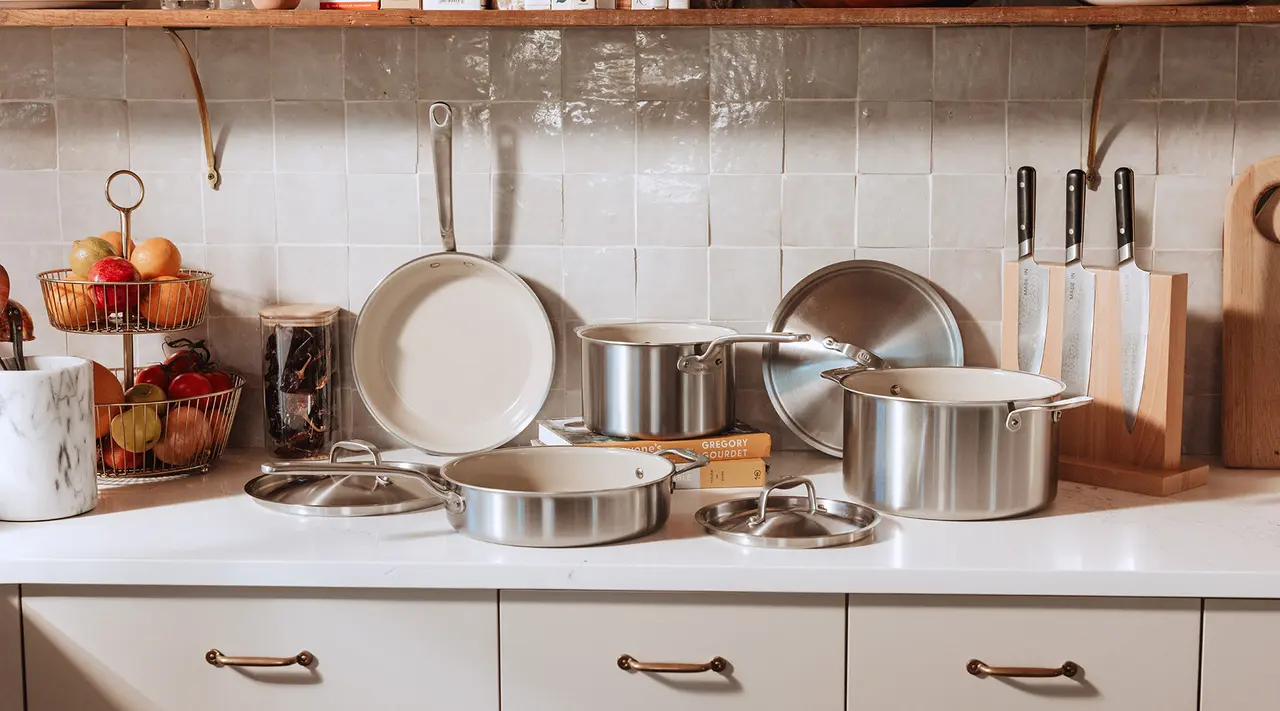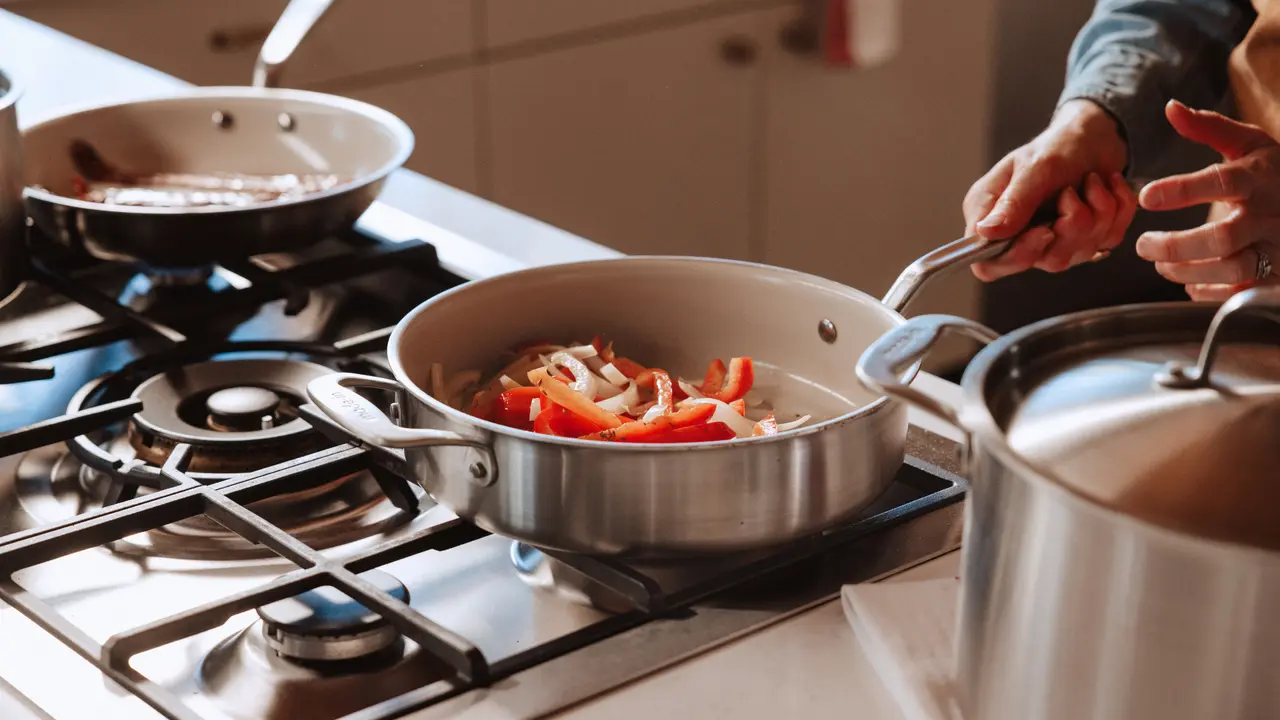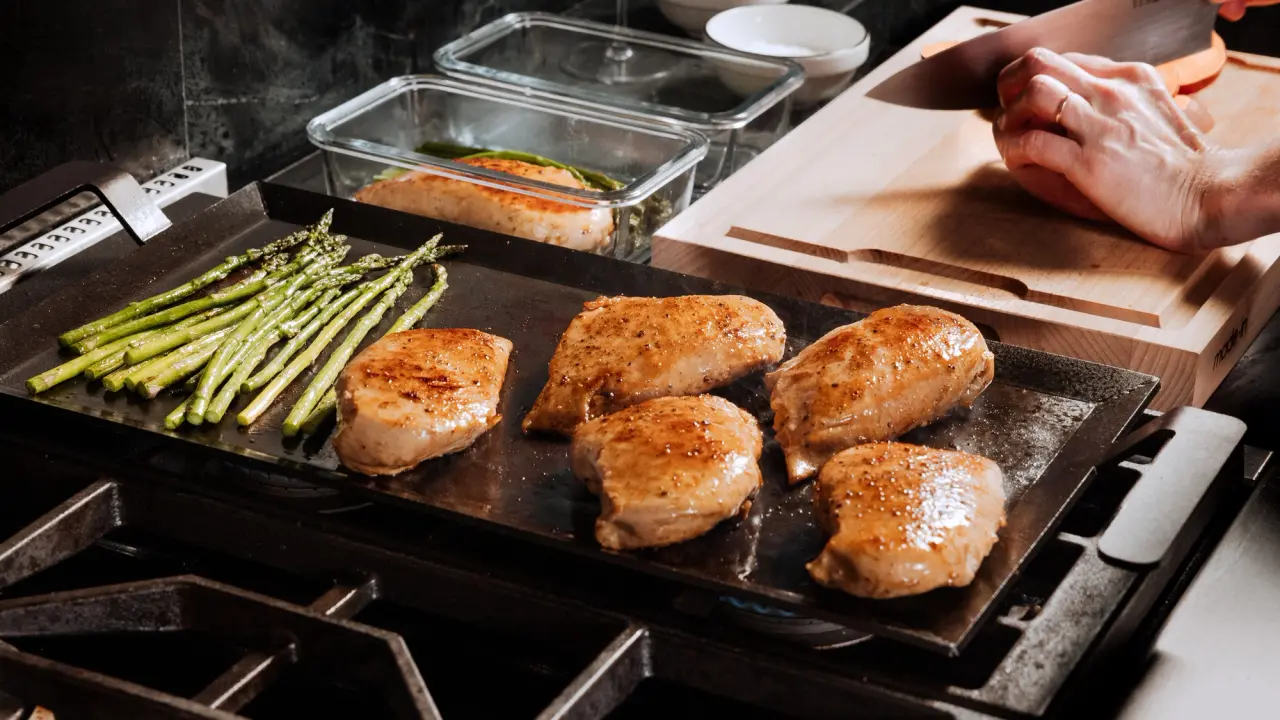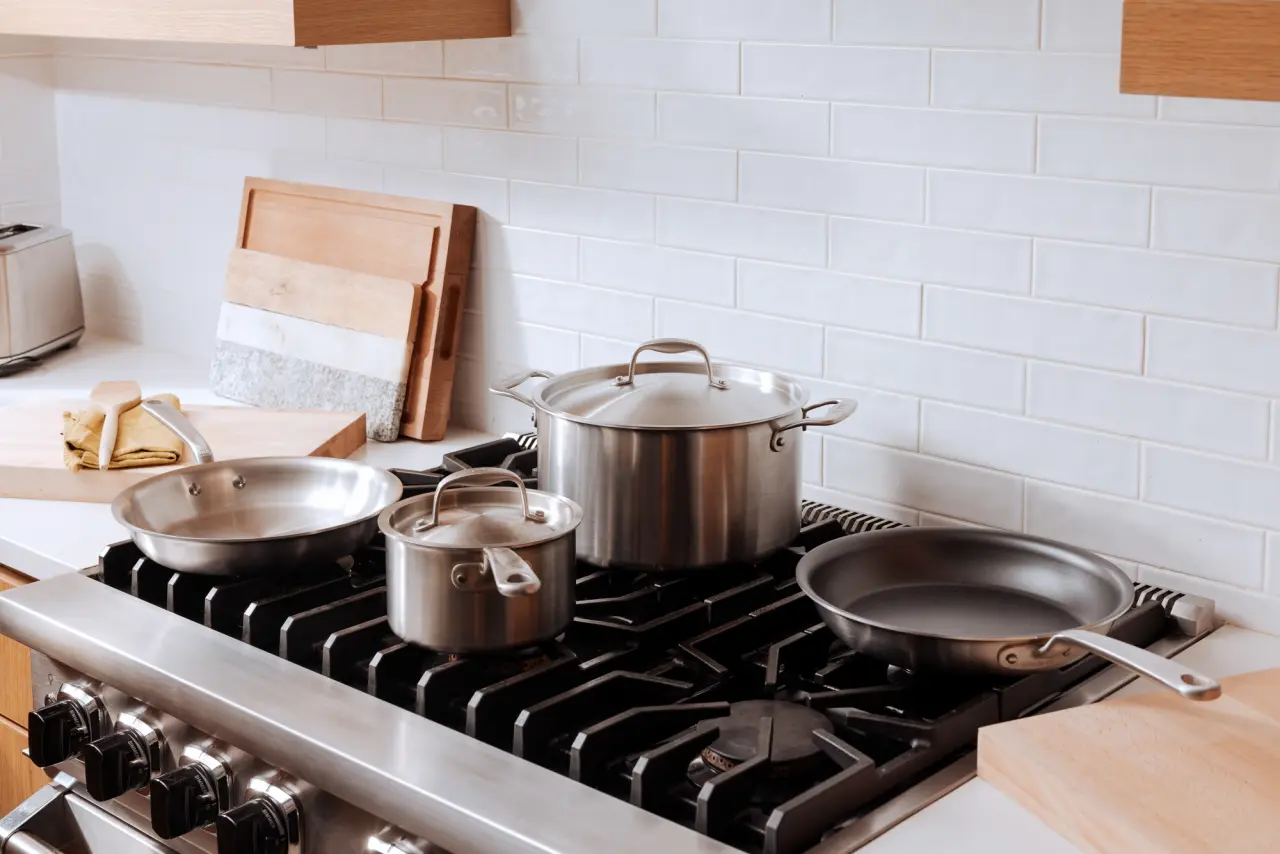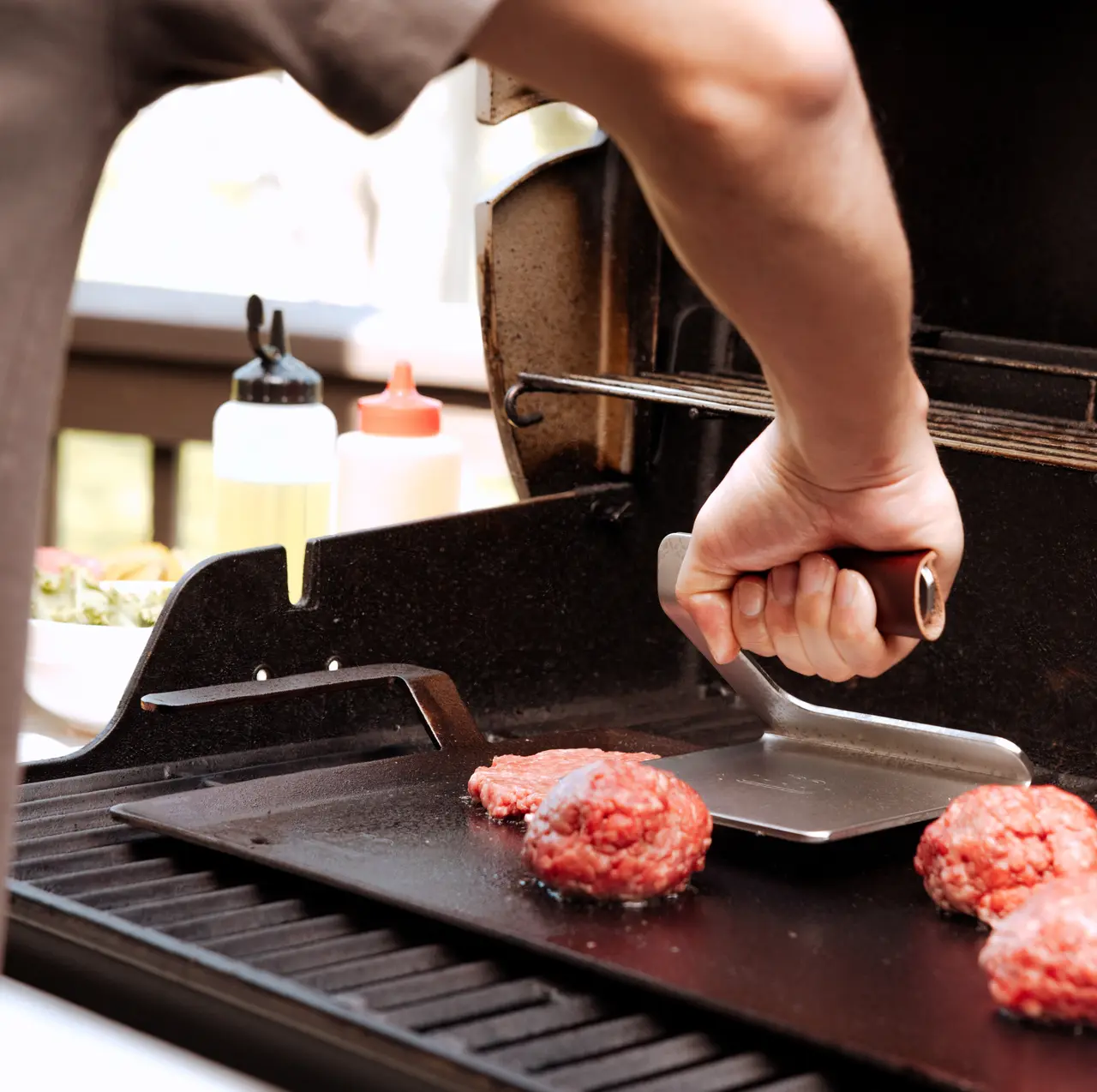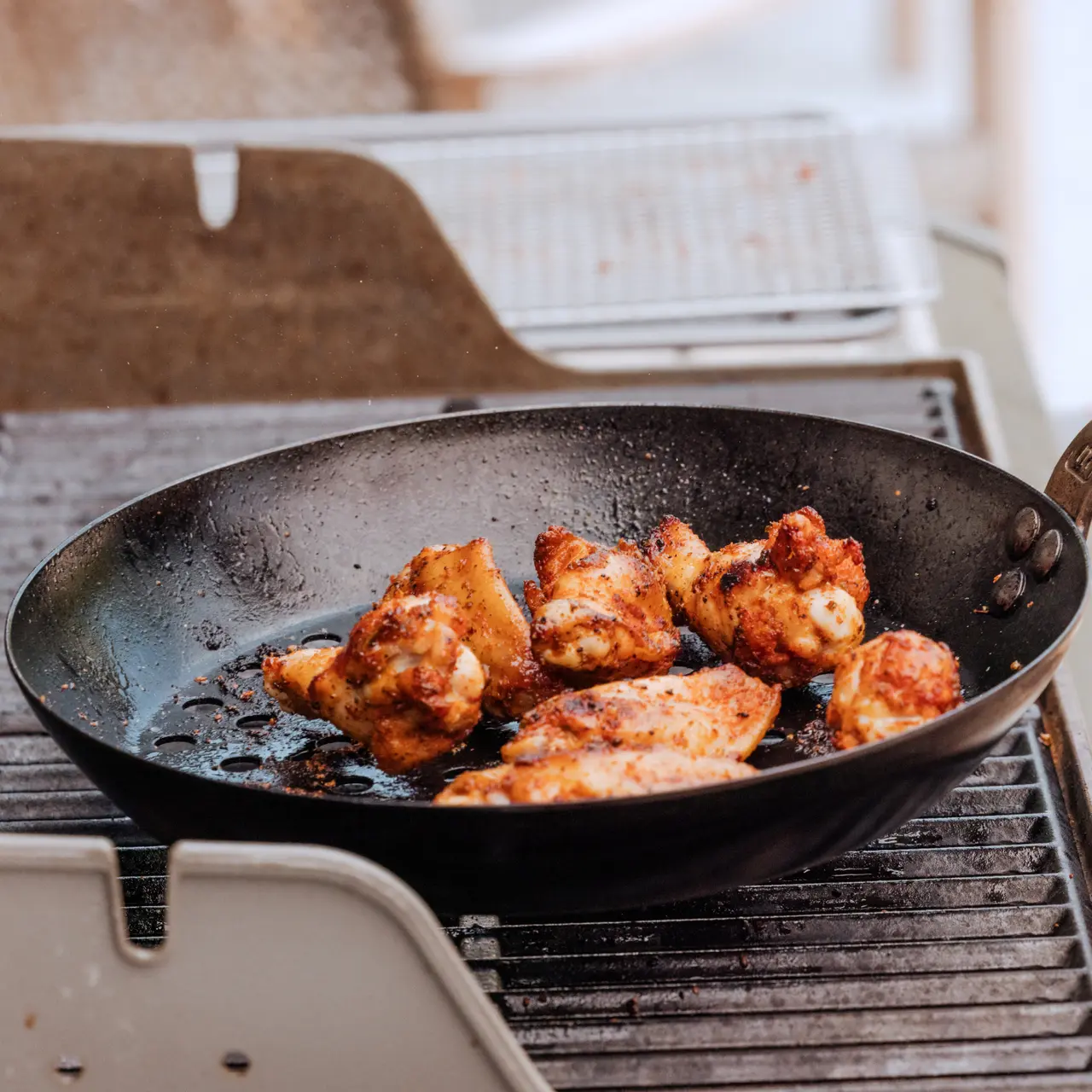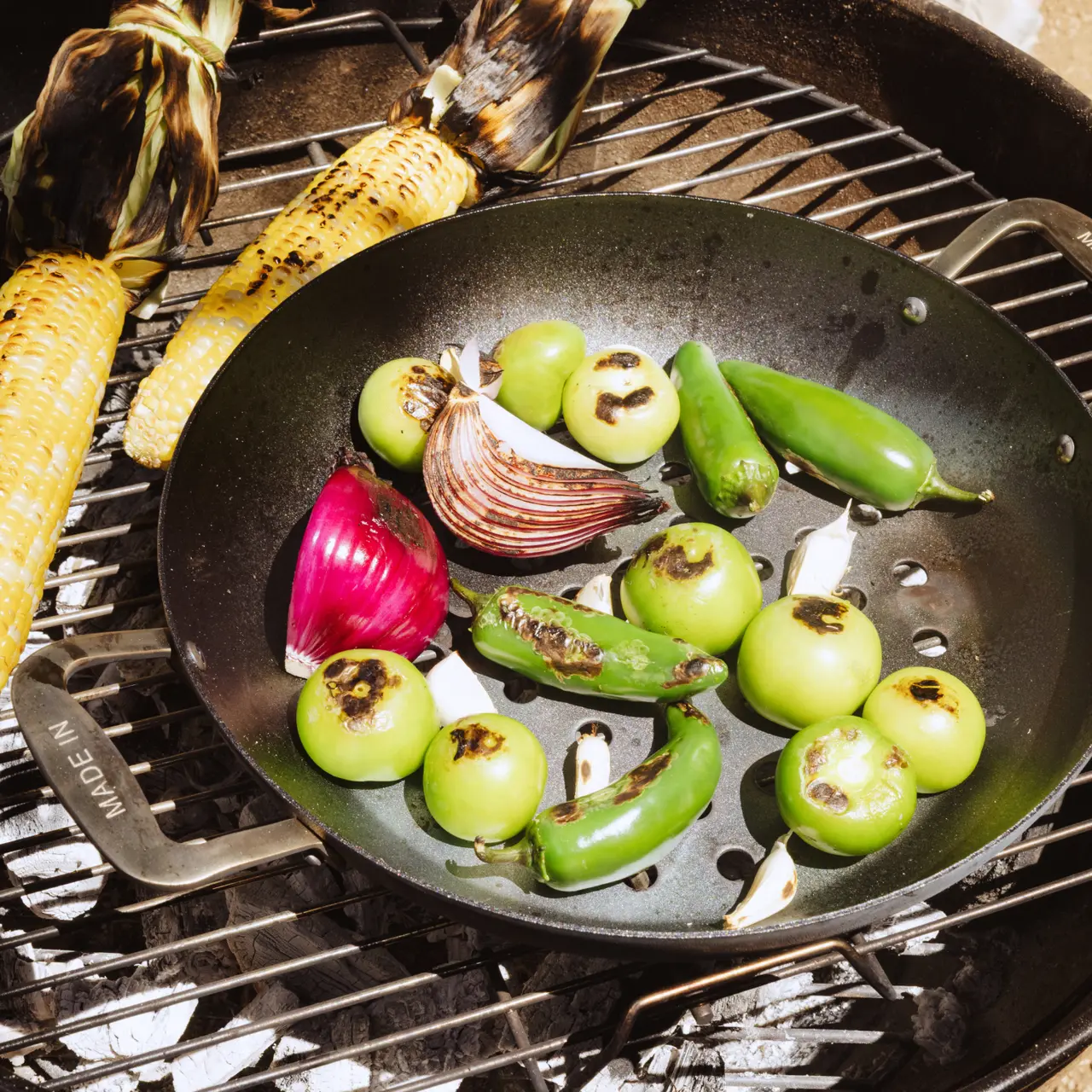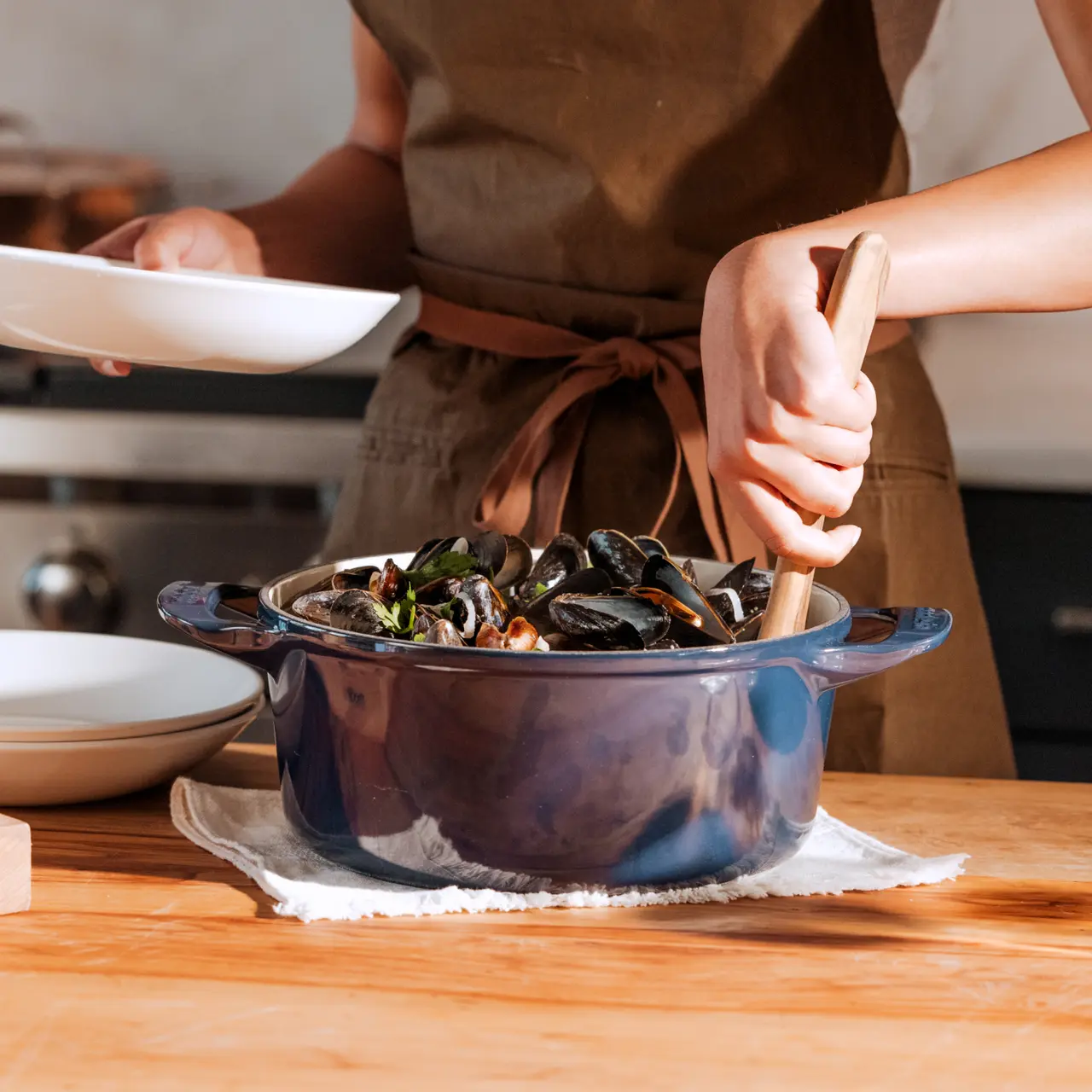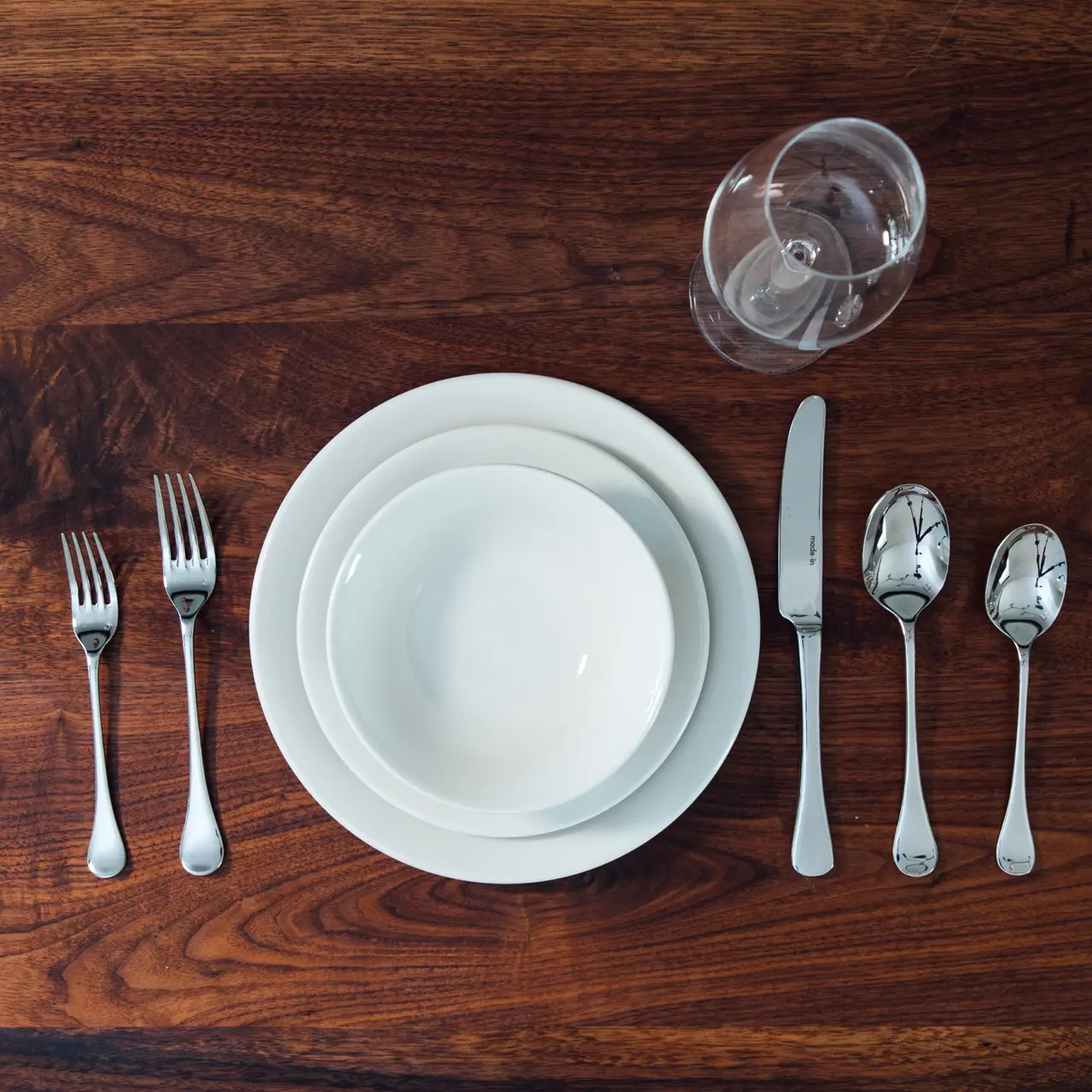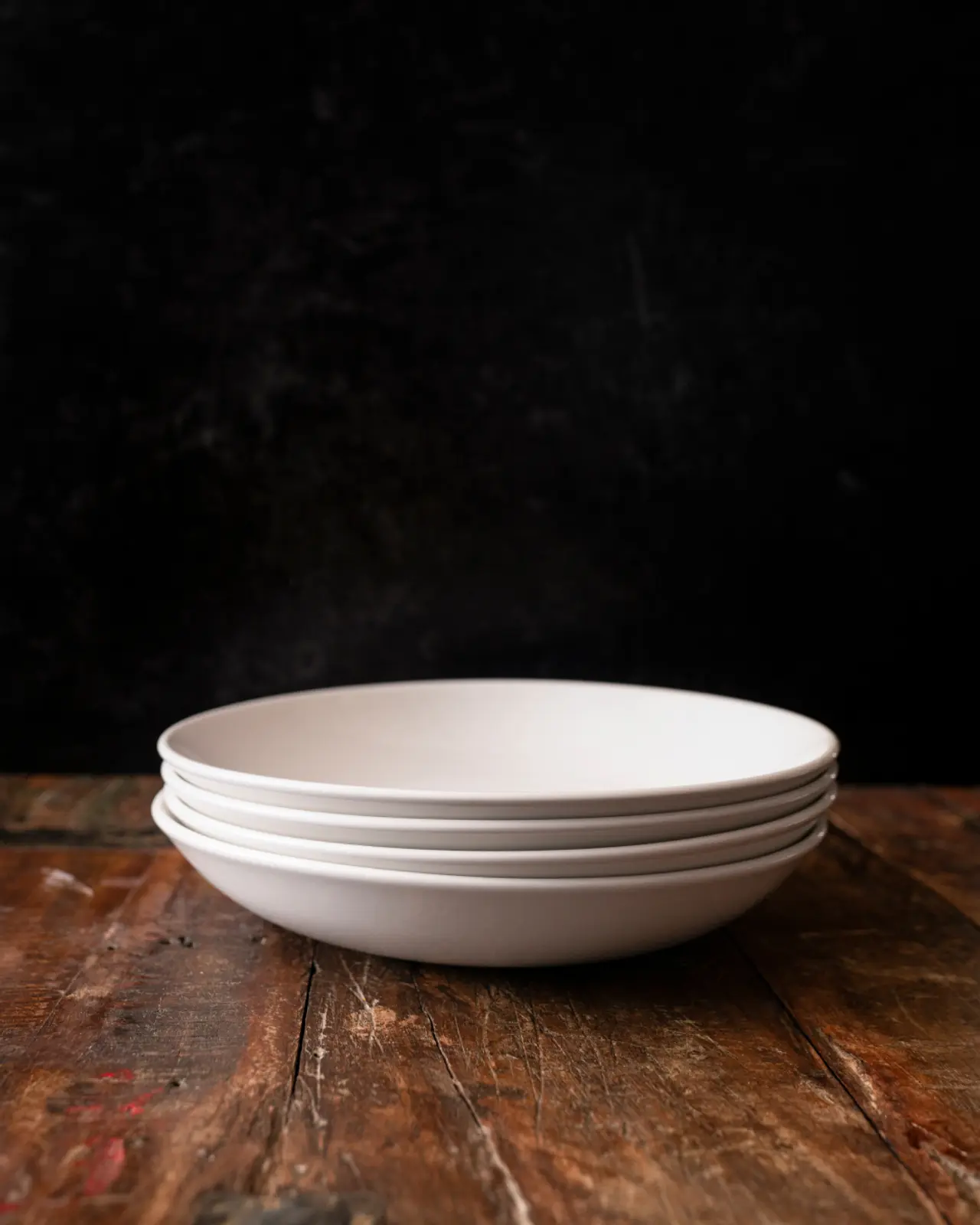Electric stoves have earned plenty of praise recently as a healthier and more environmentally-friendly alternative to gas ranges. Like induction stoves (which are, technically, a type of electric stove), they don’t rely on natural gas as a fuel source, so they don’t contribute as much to indoor air pollution and climate change. While induction and electric stoves are more similar to each other than they are to gas ranges, electric stoves stand out in one specific area—they’re technically compatible with all cookware materials, even non-ferromagnetic materials like copper.
Yet just because you can use any type of cookware on electric, certain kinds—namely unfinished cast iron—are best avoided. Similarly, the size and shape of your cookware can make it less compatible with the flat, glass-topped surface of an electric stove. Read on to learn which cookware options we recommend, and which are best to steer clear of.
Factors to Consider When Choosing Cookware for Electric Stoves
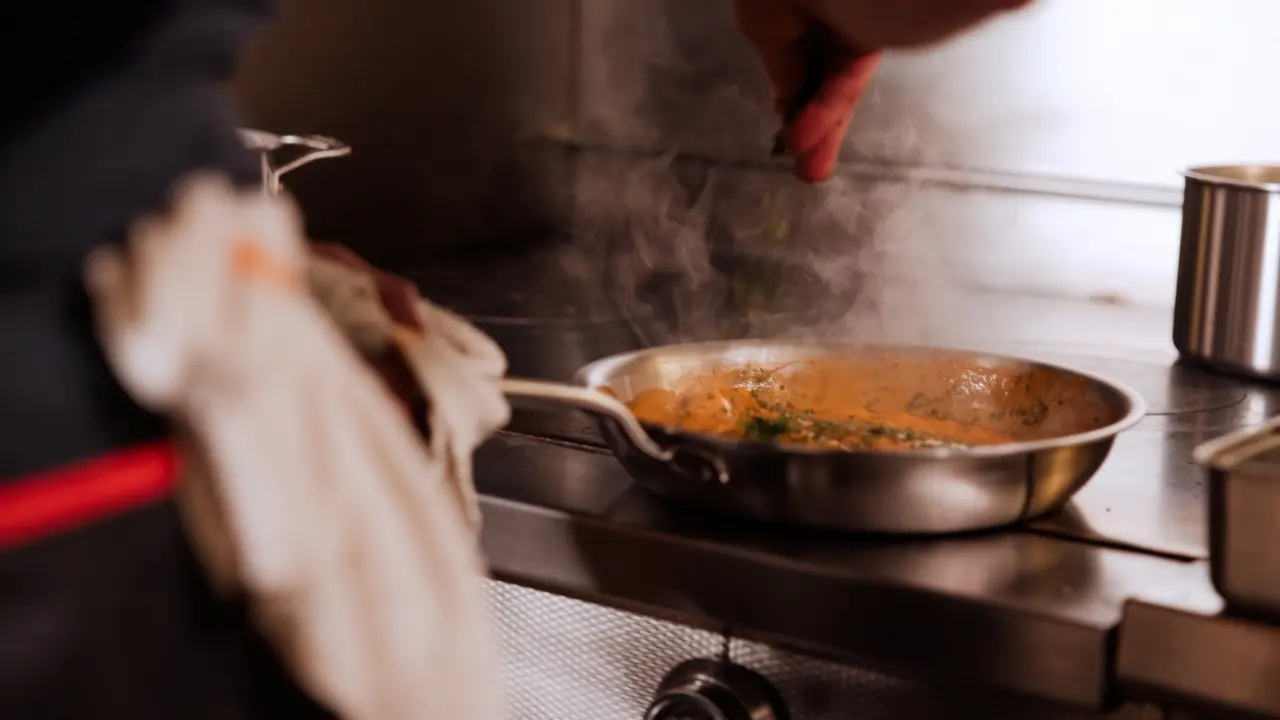
Electric stovetops are often maligned by professional chefs and home cooks alike, and have long been deemed inferior to gas or induction options. Yet this reputation may not be totally earned: a performance test by Consumer Reports shows that many electric stoves actually heat faster and more easily than other types of stoves, and do a better job of maintaining lower temperatures.
That being said, a number of cheaper electric stoves (looking at you, apartment coil stoves) heat slowly and inconsistently, and are much less responsive to changes in temperature than gas or induction. A cookware material that responds quickly to temperature changes, like stainless steel or carbon steel, can often help to minimize the risk of burning or overcooking.
Another important factor to consider is the shape and size of your cookware. While this doesn’t matter quite as much as it does for induction stoves (which require direct contact with the bottom of a pot or pan in order to generate heat) pots or pans that feature a totally flat bottom that sits flush with the burner will transfer heat much more efficiently.
It’s also not recommended to use rough materials like unfinished cast iron or stoneware on glass-topped electric stoves, since they can easily scratch the surface.
Top Cookware Choices for Electric Stoves
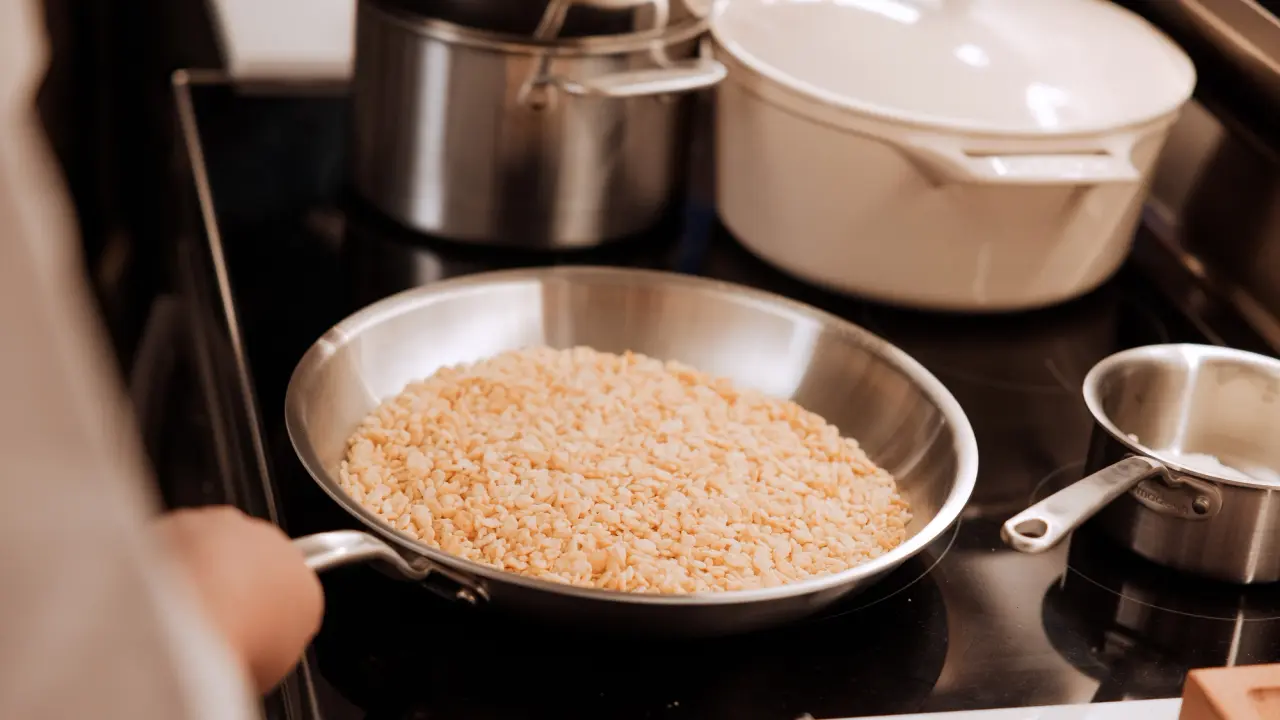
From stainless steel to non stick, here are our top picks for electric stove-compatible cookware.
Carbon Steel Cookware
Much like cast iron, carbon steel has near-unrivaled heat control, response, and retention—meaning that your pan, and therefore food, won’t be affected by uneven heating stoves with hot or cool spots. Our Carbon Steel Collection is also induction compatible, and the smooth exterior of seasoned carbon steel also reduces the risk of scratching a glass-topped stove, making this a solid choice for use on any type electric stove.
Ceramic Cookware
Composed of non-toxic ceramic coating applied over a metal base, whether o not ceramic cookware performs on an electric cooktop depends on the composition of its meal base. Our CeramiClad™ Non Stick line features our same 5-ply Stainless Clad base as our Stainless Clad Collection, so it's up to the job and ready to heat evenly no matter the type of electric cooktop you're working with.
TL;DR: Not all ceramic cookware is made the same, but a high-quality ceramic pan—like our CeramiClad™ collection—should perform flawlessly on an electric cooktop.
Copper Cookware
Like stainless steel, copper cookware is known for its incredible heat conductivity and ability to cool down rapidly, which can help compensate for slow- or uneven-heating electric stovetops. The only thing to note is copper is not induction compatible, so it will not be able to be used on electric induction stoves.
We recommend our Copper Collection, which features a nonreactive stainless steel core for exceptional conductivity and durability without the need to be retinned or refurbished in the future.
Enameled Cast Iron Cookware
One of the selling points of cast iron cookware is the fact that it gets—and stays—very, very hot, even after you’ve turned the burner off. So if you’re working with an unreliable electric stovetop, your food likely won’t be affected too much. If you do decide to use cast iron on your glass-topped electric stovetop, however, you’re best off with one that has an enamel finish—like our Enameled Cast Iron Collection—vs a rough, unfinished one in order to prevent scratching.
Non Stick Cookware
A sturdy, flat-bottomed non stick frying pan or pot works well on any kind of stovetop, and electric is no exception. And since our ProCoat Non Stick Cookware is made with our 5-ply Stainless Clad base, it offers even better conductivity and distribution than a typical non stick pot or pan.
Stainless Steel Cookware
Opting for a high-quality stainless steel pot or pan—like our 5-ply Stainless Clad options—ensures optimal conductivity and temperature responsiveness, making it our go-to pick no matter what kind of stove you’re cooking on. With an electric stove that can heat slowly or unevenly, it can make for a much more efficient and consistent cooking experience (even on coil burners—speaking from experience!). And since it’s so lightweight, you can easily transfer it to a second burner to control the cooking speed.
Maintenance and Care Tips for Cookware on Electric Stoves
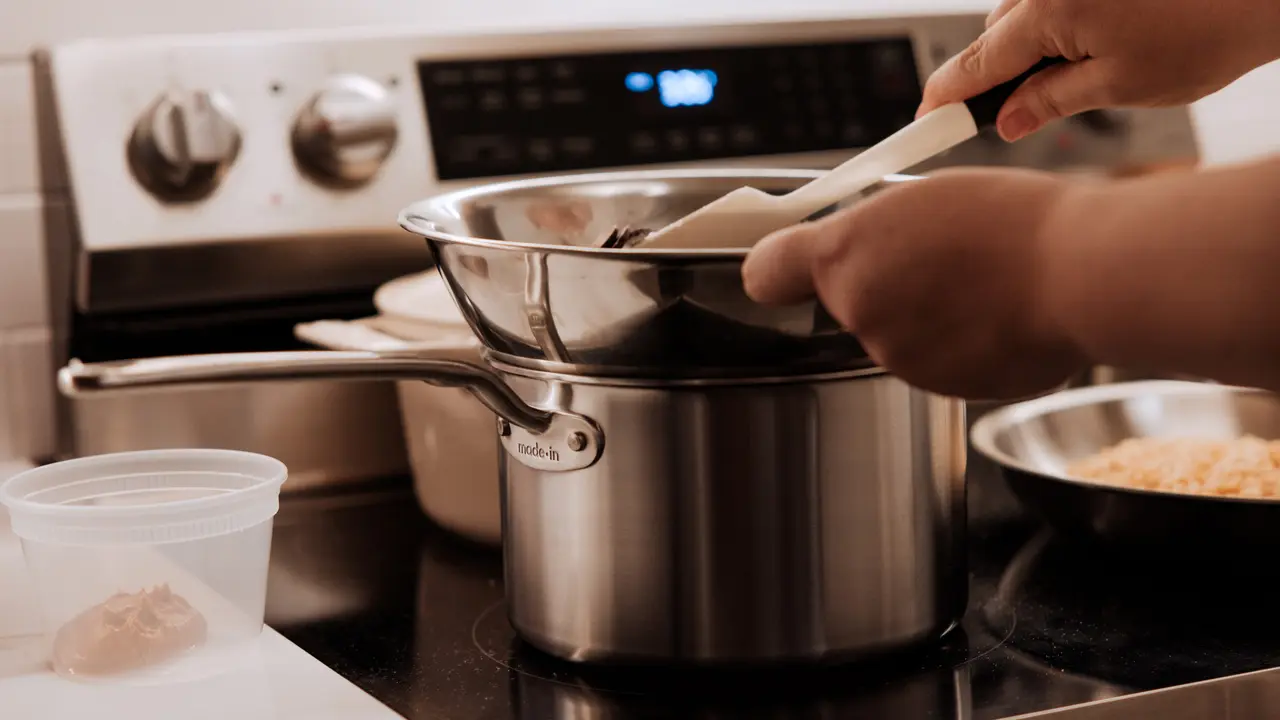
One of the other benefits about electric stoves—both traditional and induction, and particularly glass-topped stoves—is how much easier they are to clean than gas stoves. Whereas cleaning a gas stovetop requires removing the grates and possibly even scraping burnt food out of the crevices of each burner, cleaning an electric stove’s flat, smooth glass surface requires little more than a quick wipe with warm, soapy water—perhaps a sprinkle of baking soda for trickier messes.
To keep your glass-topped electric stove free of scratches, make sure to never drag your cookware across the stovetop surface, and avoid using abrasive materials like steel wool when cleaning. It’s also best to clean up any messes as soon as possible, as you don’t want to damage the glass by scrubbing too hard.
Ready to Shop?
With so many compatible cookware options, your cooking routine doesn’t have to suffer just because you switched to electric. So whether you reach for copper, non stick, cast iron, or stainless steel, you can stop lamenting your long-lost gas stove—and start planning your next brunch menu.
